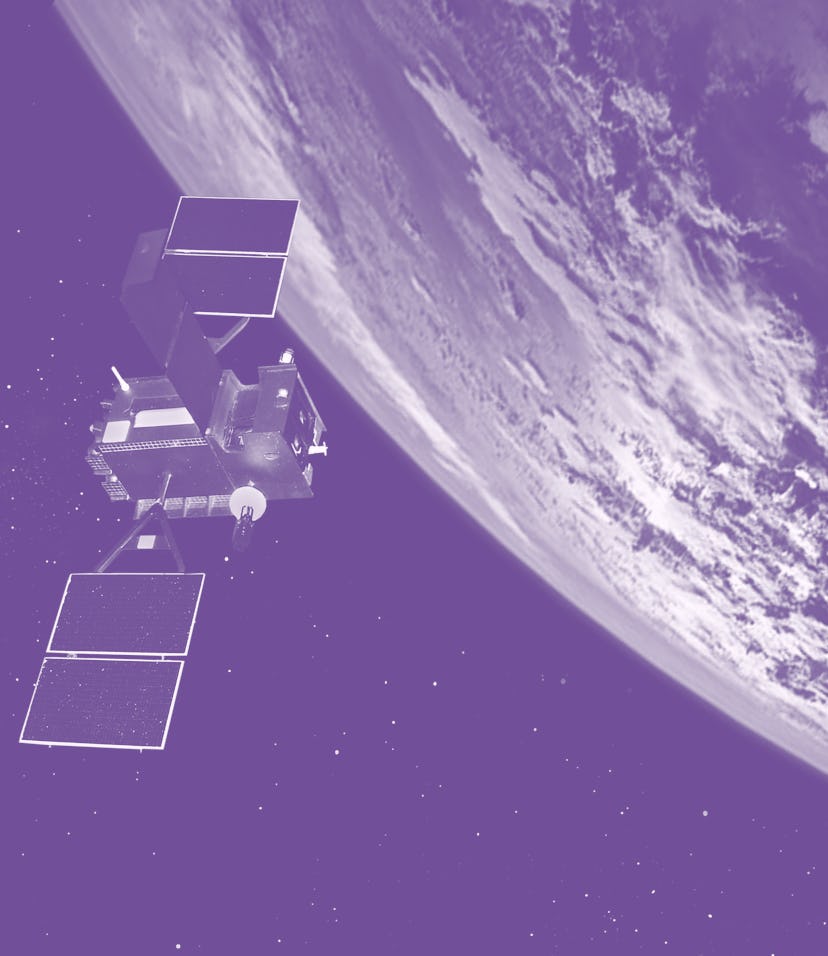Culture
Amazon poached a bunch of experts from Facebook's satellite internet team

500
Employees working on Amazon's Project Kuiper.
Amazon’s satellite internet project has secretly been receiving help from an unlikely source: Facebook. More than a dozen internet experts left Facebook to work on Amazon’s satellite internet plans, The Information reports. A Facebook spokesperson confirmed that the employees have indeed joined Amazon’s team.
The workers in question span a variety of disciplines, including physcists and optical, prototyping, mechanical, and software engineers. And Amazon came by the lot of them as a package of sorts, it seems — the company even paid Facebook to seal the deal. That detail lends credence to the idea that Facebook is scrapping its satellite internet dreams entirely.
Amazon’s own satellite internet project is still in its nascency. It’s been less than a year since the tech giant received FCC approval to launch more than 3,000 low-flying satellites into orbit by the end of the decade. At the time, the FCC said Amazon’s project would “advance the public interest.”
There’s plenty of room in the satellite internet market for Amazon to take its time getting started. But it’s unclear whether or not all that effort will even be worth it.
Time to beat Starlink — Amazon plans to have half its satellite fleet up and running by 2026 — not all that far off, really. The full fleet of 3,236 satellites should be up and running by 2029, if all goes well.
In the context of Elon Musk’s Starlink, though, which expects to have half a million customers by the end of this year, Amazon is definitely behind. Starlink is, beyond a doubt, the company to beat right now; there are already more than 1,800 Starlink satellites in the sky right now, and the company expects to eventually launch a total of 12,000.
Still, Starlink is really the only big satellite internet project that’s come to fruition; others, like OneWeb, have quickly gone bankrupt. Starlink is buzzy and early, but the market as a whole is still very much in development.
But is it worth it? — The reason companies like OneWeb have failed so spectacularly is that satellite internet is very expensive to operate. Even Starlink, which seems to consider itself a runaway success, is losing about $800 for every home internet it sells — not to mention the nearly $30 billion it will cost to launch the full fleet.
The return on that investment is shaky at best. Early Starlink customers complain of inconsistent connectivity, and the company itself says it’s only for people in sparsely populated regions. Starlink expects to provide internet service to about 500,000 people; that’s barely a drop in the ocean of the 42 million people living without standard broadband access in the United States alone.
With the acquisition of Facebook’s old team, Amazon now employs about 500 experts working toward launching its own satellite internet system. It’ll be interesting to watch the company work fast to catch up to Starlink — we’re just not sure that particular space race will be all that fruitful for the average person.